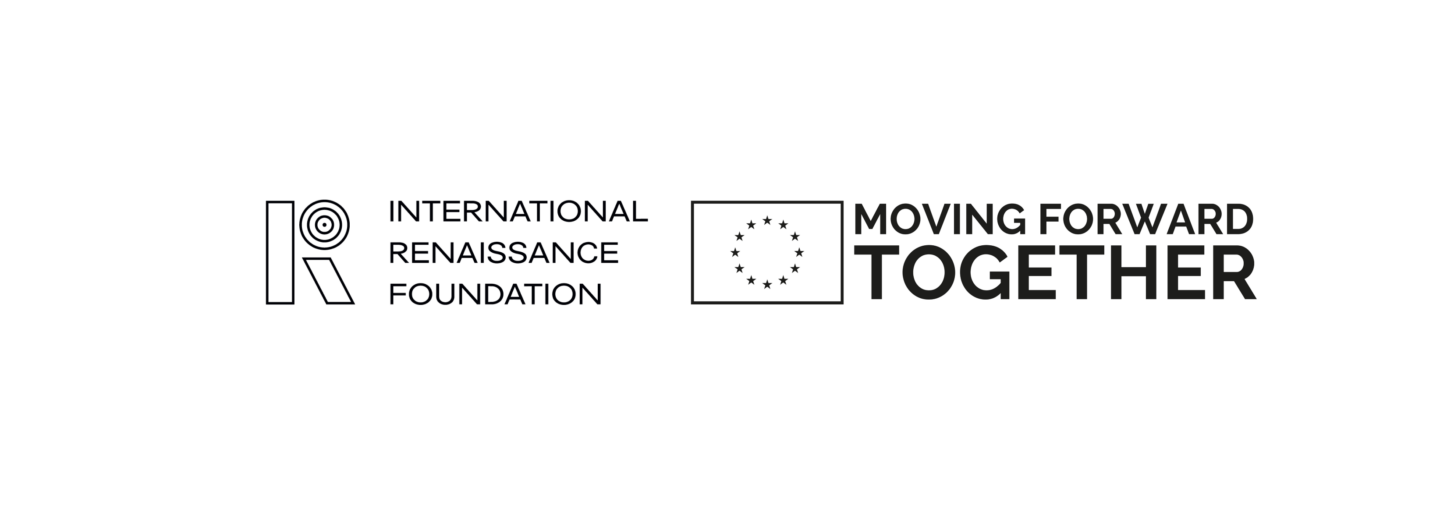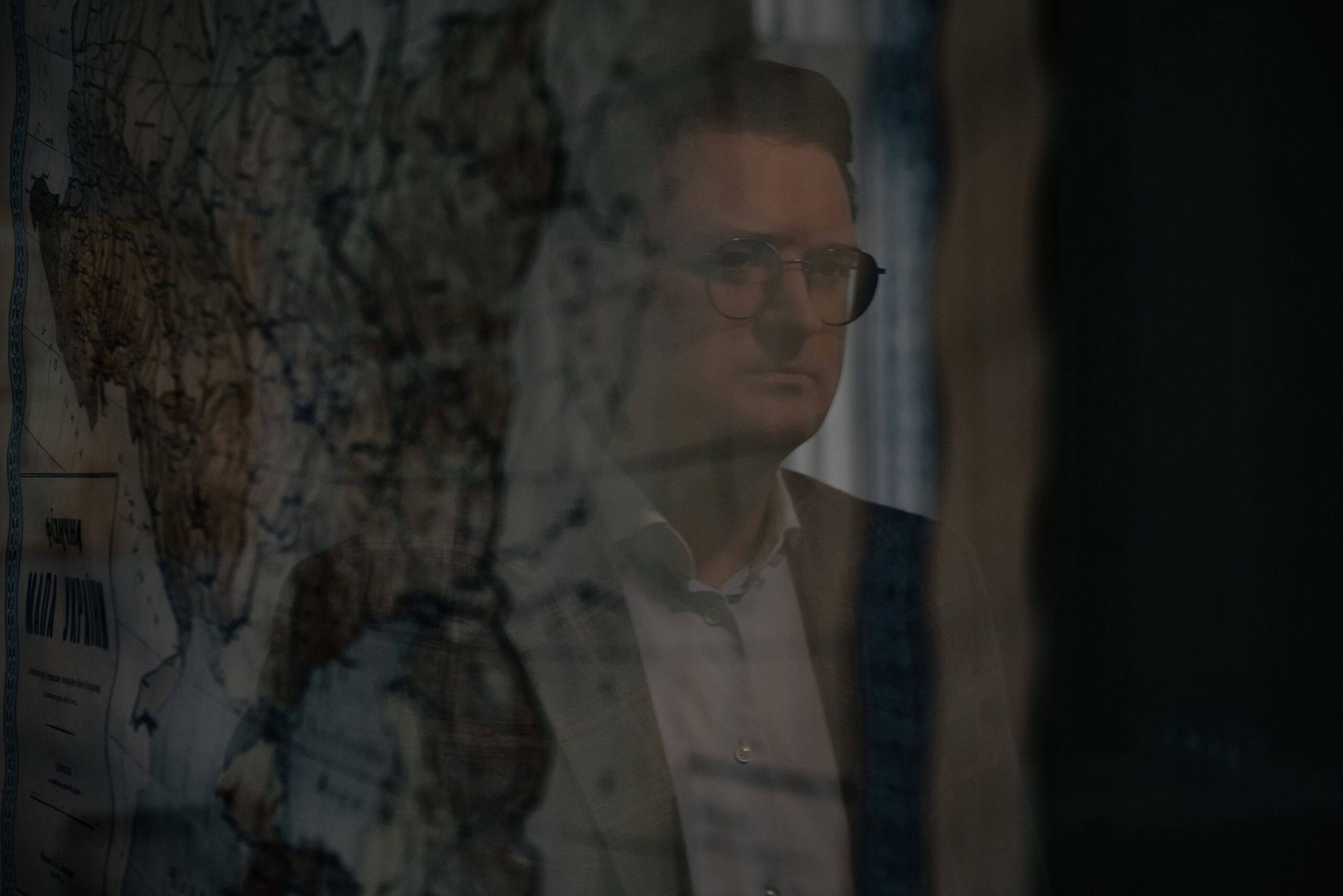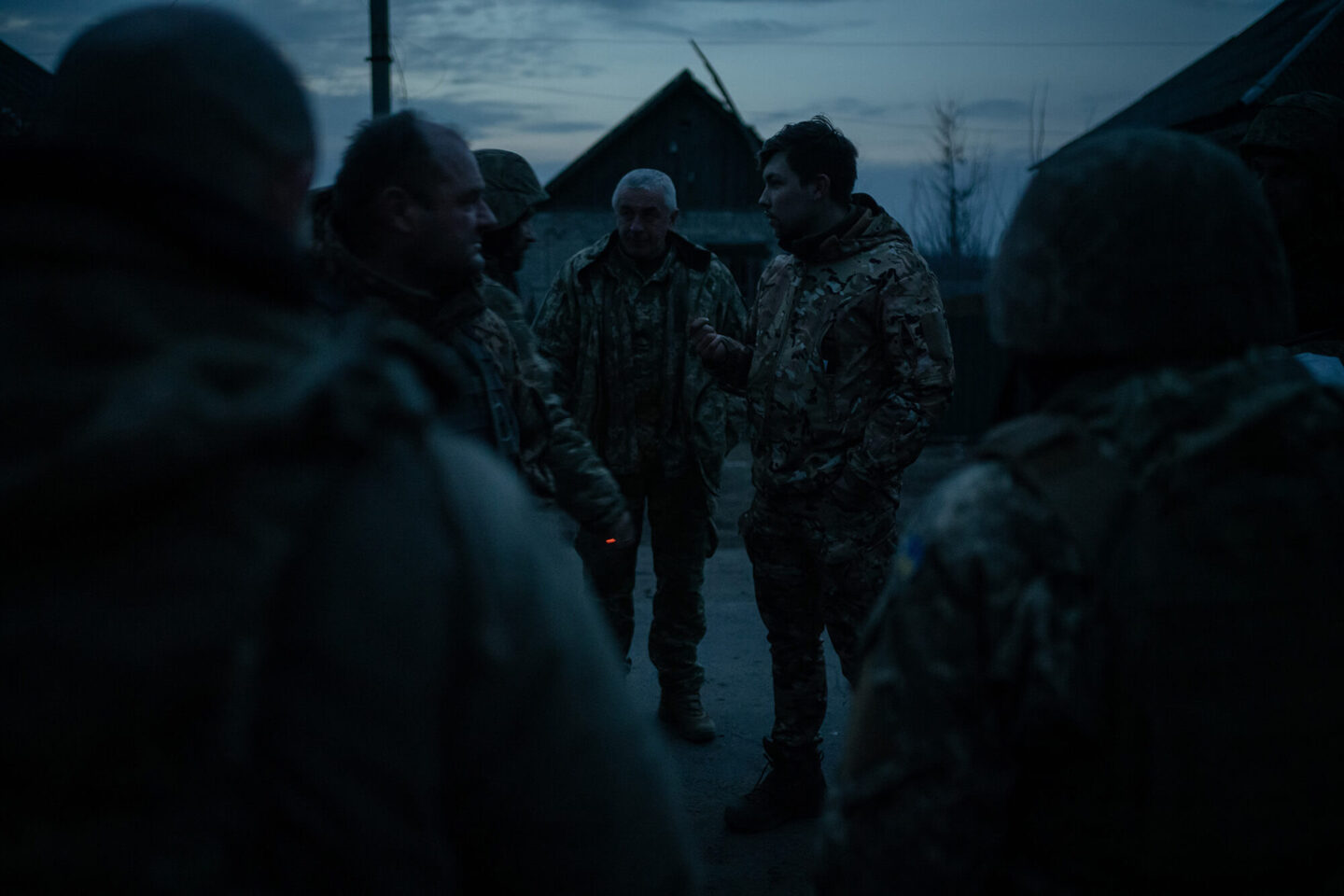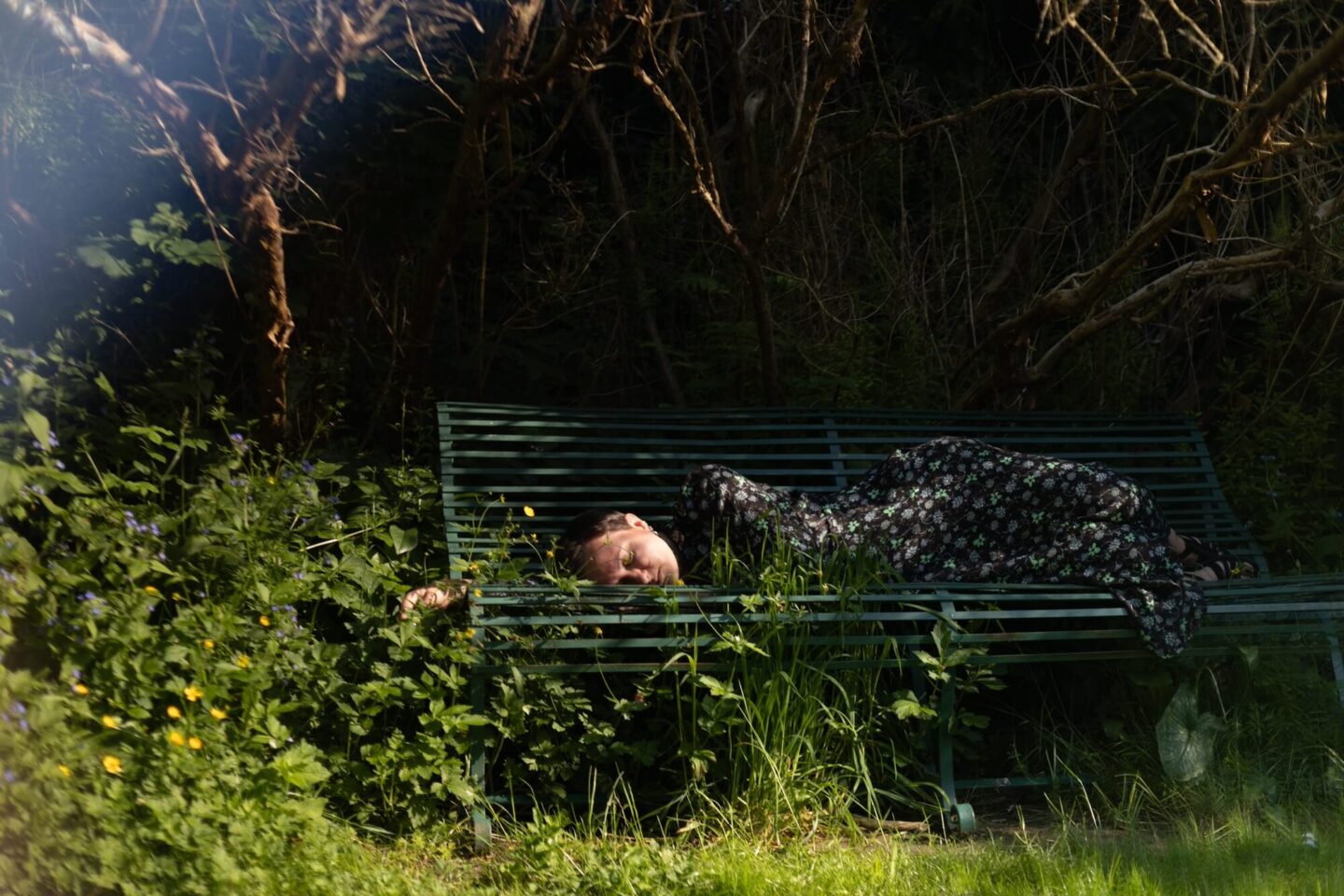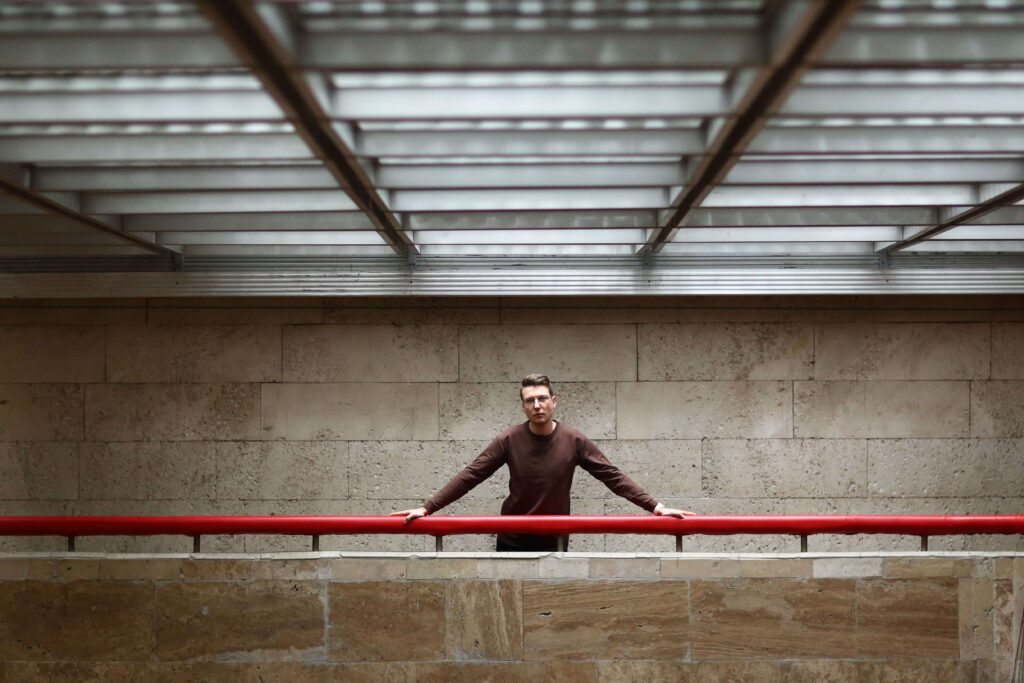Dmytro Kuleba prepared for the Russian full-scale invasion, but he hoped and prayed it could be avoided. Back in 2019, when writing his book “War for Reality,” he was certain that the main war for the following decade would be waged in the information space. When February 24, 2022, came, the war for reality did break out, but literally.
Several days before another diplomatic trip, Dmytro Kuleba found a few minutes for a sincere conversation not only about the war, but also about his way to diplomacy and to the Ministry of Foreign Affairs.
I could have been a son of the Gazprom oligarch
August 19, 1991—beginning of the August coup. On this very day, Dmytro Kuleba’s parents were going to Moscow by train. His father, Ivan, was just finishing his studies at the All-Union Academy of Foreign Trade, and little Dmytro stayed in Sumy oblast with his grandparents. On August 31, he was to be brought to his parents and to start school in Moscow. But when Ivan Kuleba saw the tanks being transported in the direction of the Soviet capital, he realized something serious was happening. A person who had served in Afghanistan could understand such things very well. On August 24, when Ukraine proclaimed its independence, the Kuleba family was still in Moscow, and only their son, Dmytro, stayed in Ukraine.
“My father was offered to stay and build his career there. He was invited to the international direction of the then Ministry of Oil and Gas of the USSR—the one Gazprom took its roots from. My father declined the offer. He had career perspectives in Russia, but he made a fundamental decision for himself and returned to Ukraine.
One man my father had pretty good relations with, advised him to stay and told him in parting: “Vania, don’t go, khokhols will cheat you anyway.”
It is a typical Russian chauvinism. Surely, my father never listened to the man and came back home, so I sometimes tell this joke I could have been a son of the Gazprom oligarch but was lucky enough to become a son of the Ukrainian diplomat,” says Dmytro Kuleba.
Already as an adult, Dmytro asked his father whether he, as a man integrated into the Soviet context, didn’t hesitate to come back to Ukraine. His father told him: “Not for a second.” He explained there couldn’t have been any other choice, as that was their country, where their parents’ house was standing, together with every part of their DNA.
Apart from Ivan Kuleba, there were a few more people, who at that time had an all-Union career in international affairs, but who came back to Ukraine to build Ukrainian diplomacy.
The way to the Ministry of Foreign Affairs
Dmytro Kuleba studied at one of few Ukrainian-speaking schools in Kyiv, as well as at the international school in Vienna, which gathered representatives of more than a hundred countries under its roof.
“In Vienna, I encountered the whole world within one school. It was unbelievably interesting. And in my last year at school, I realized I wished my life to be connected to something international. I could feel it on my fingertips. Obviously, my family had their influence, specifically my father. He loved his work very much, and it is transmitted powerfully on an emotional level. We never had any conversations about me becoming a diplomat, but, undoubtedly, I understood he’d want it. My father never gave me any directions on this behalf and always stressed it was to be my choice, and if I made it, I would have to learn to swim in that ocean all by myself. I only received his first professional advice a few years after I’d become a diplomat myself—it was in 2005.”
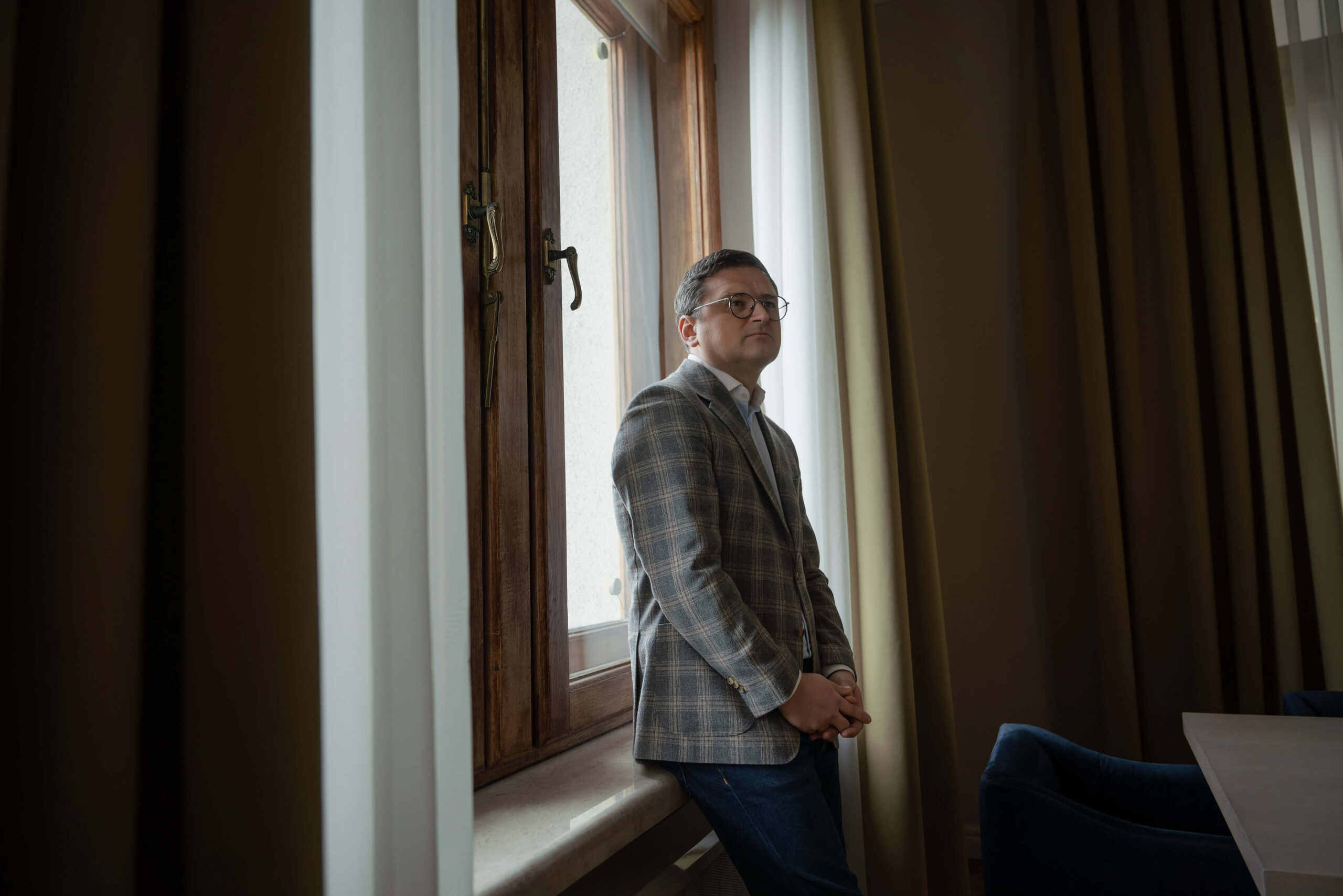
On finishing school, Dmytro entered the Institute of Foreign Affairs of the Kyiv university, majoring in international law, and successfully graduated from it. But he recollects that there was a moment of doubt in his fifth year—whether to continue his way as a diplomat or to become a private lawyer.
“In front of my eyes, I could see a Soviet building of the MFA, soaked with the Soviet spirit: worn out carpets, furniture… At that time, I was strongly repelled by it. The feeling was particularly strong after my internship at one of the best private law companies, where everything was so modern, and I was surrounded by professional self-confident men and women in expensive suits. At some point, I thought perhaps, it would be better to immerse myself in this beautiful, successful world. But I quickly quenched this desire and went to fulfill my mission.”
In 2003, Dmytro Kuleba joined the MFA. He remembers well his first business trip abroad—to Vienna—where he worked in the Ukrainian mission to the OSCE. In six months, he managed to gain credibility, and he applied for the position of chairman of a subcommittee of one of the committees.
“To get this position, you should pass an interview with one of the OSCE chiefs—an old, experienced investment banker,” recalls Dmytro Kuleba. “We talked with him, and he told me at the very end of the interview: “Dmytro, you are still so young, but I like you, so I will give you some advice: if you want to be efficient and constantly move forward, you must learn how to say “no” to people.” I took his advice to heart and learned this rule well. It is not always easy, to put it mildly. But I believe I am where I am now because I can say “yes” and “no” where it is necessary.”
This rule has helped him multiple times over 20 years in international relations. But there is another one, similarly important, as far as Dmytro Kuleba is concerned,—to love what you do and at the same time, not to become a slave to the system in which you are working:
“When you love something not blindly, but consciously, it cannot disappoint you.
Fortunately, my love for my country, my family, and diplomacy is conscious, therefore I treat all difficulties as challenges.
I am the blood and body of this system, and in this case, there is always a risk to become its slave. When you have only one area in which you can fulfill yourself and make money, sooner or later you will become a hostage to it.”
That’s why, still being a student, Dmytro Kuleba decided he had to have other adjacent professions. This rule helped him get through crises and not compromise his conscience, and by this, stay himself: “I realized I would never do anything I considered to be profoundly wrong, because even if it meant the end of my occupying some position, I could easily go and start working somewhere else. To be honest, this is my greatest internal achievement.”
When asked “What is the basis of diplomacy?” Dmytro Kuleba answers: negotiations. He compares diplomacy to frying an omelet. He explains—to make an omelet, you must beat the egg white with the yolk—this is the basic rule. Everything else is specific to the historical moment and the ingredients. You can make a French, Japanese, or any other omelet. The look, the taste, the smell of the final dish is always different. Likewise, in diplomacy, the basic rule is unchanged—these are negotiations, but it is important how to conduct them, what to consider, and what emphasis to place.
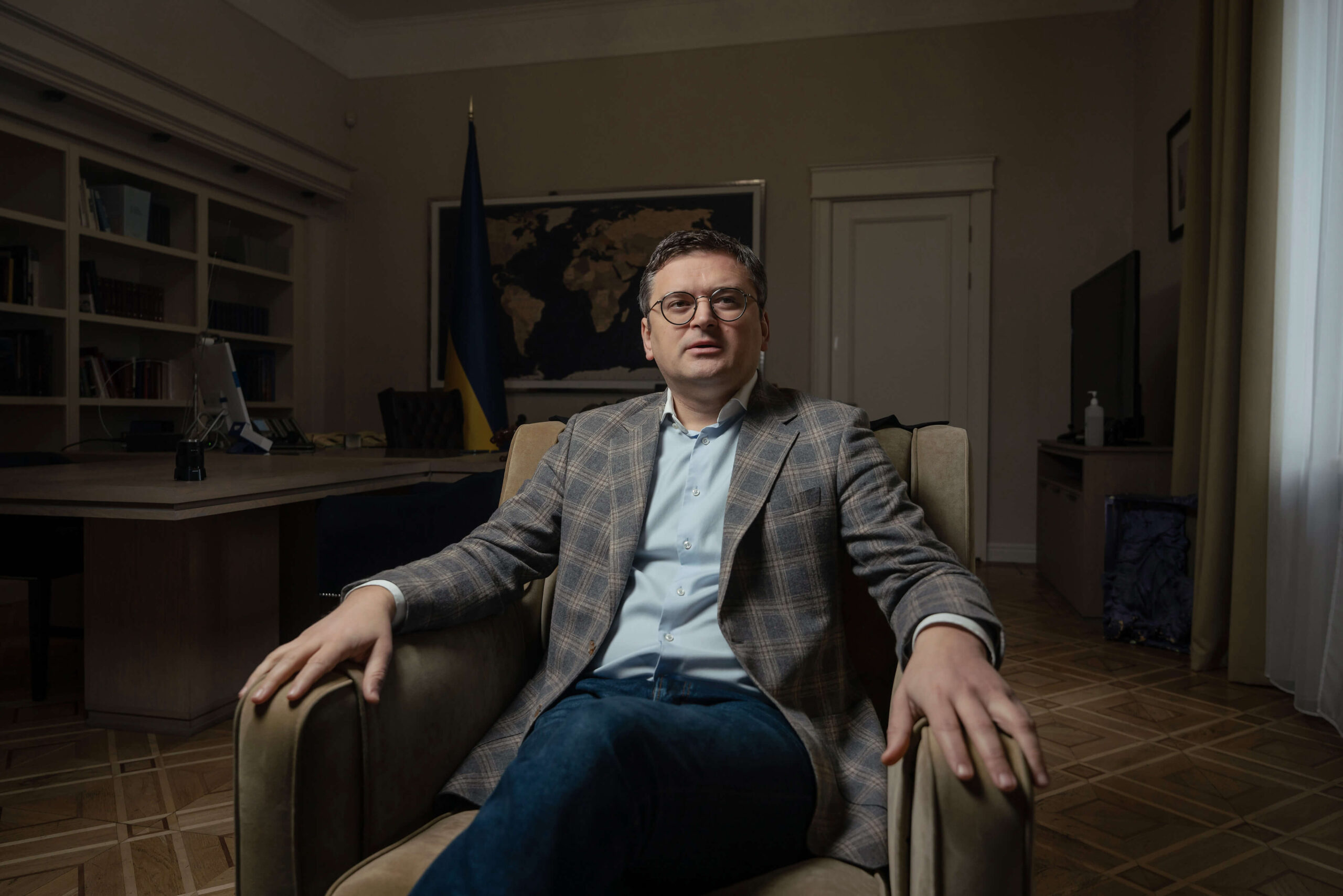
“Sometimes, instead of numerous rational arguments, you just need to tell your partners one story to influence their position. If I were to compare the diplomacy of 20 years ago and that of now, I would definitely say that now it has become much hotter, with a lot of spices,” says Dmytro Kuleba.
Pavlo Klimkin, Minister of Foreign Affairs of Ukraine in 2014-2019, remembers Dmytro Kuleba’s work at the Ministry well, dating back to 2010. Then, Kuleba worked in the minister’s secretariat, and Klimkin was the director of the EU Department.
“Dmytro has a very noticeable flair for creativity, as well as desire to see the world and processes in it not through the prism of bureaucracy, but as they really are. This is crucial. Perhaps, that’s why we’ve always understood each other,” says Pavlo Klimkin.
Minister
On March 4, 2020, the Verkhovna Rada appointed Dmytro Kuleba as Minister of Foreign Affairs upon the proposal of President Volodymyr Zelenskyy. At that point, he didn’t plan to fight the coronavirus and clearly didn’t expect he’d have to negotiate daily to provide Ukraine with weapons to fight the aggressor. The newly appointed minister came to office with a clear understanding of the three tasks he was going to accomplish in three years, according to his estimations.
“The first aim I announced in my new position was to open new horizons for Ukraine in the world. For objective reasons, since 2014, our foreign policy had finally become Euro-Atlantic-centered. “Euro” stands for the EU, and “Atlantic” stands for NATO. Correspondingly, main resources of the MFA were directed towards the Western direction of our diplomacy.
Undoubtedly, Ukraine’s entering the European Union or NATO is our main priority, but there are opportunities for Ukraine in every part of the world.
In view of this, one of the first foreign policy decisions I made as Minister was to develop the MFA’s Asian strategy,” Dmytro Kuleba comments.
At the same time, the Ministry started developing the Nazovni system, which provided Ukrainian entrepreneurs with the MFA advice on different issues related to working in a foreign market. For this, an entrepreneur needs to register on the platform and create an application. The Ministry also worked on visa-free travel so that Ukrainian citizens could freely visit more and more countries.
The second task—strategic—was to do everything to embed Ukraine as part of the West. For this, the Ministry started working on the status of NATO Enhanced Opportunities Partner and on the implementation of the EU Association Agreement: “Imagine you are constantly investing into building your house, and the house is not built. It’s depressing. So, we wanted to make sure that both sides understood the stage the “building” was currently at and when the “house” was to be “constructed.”
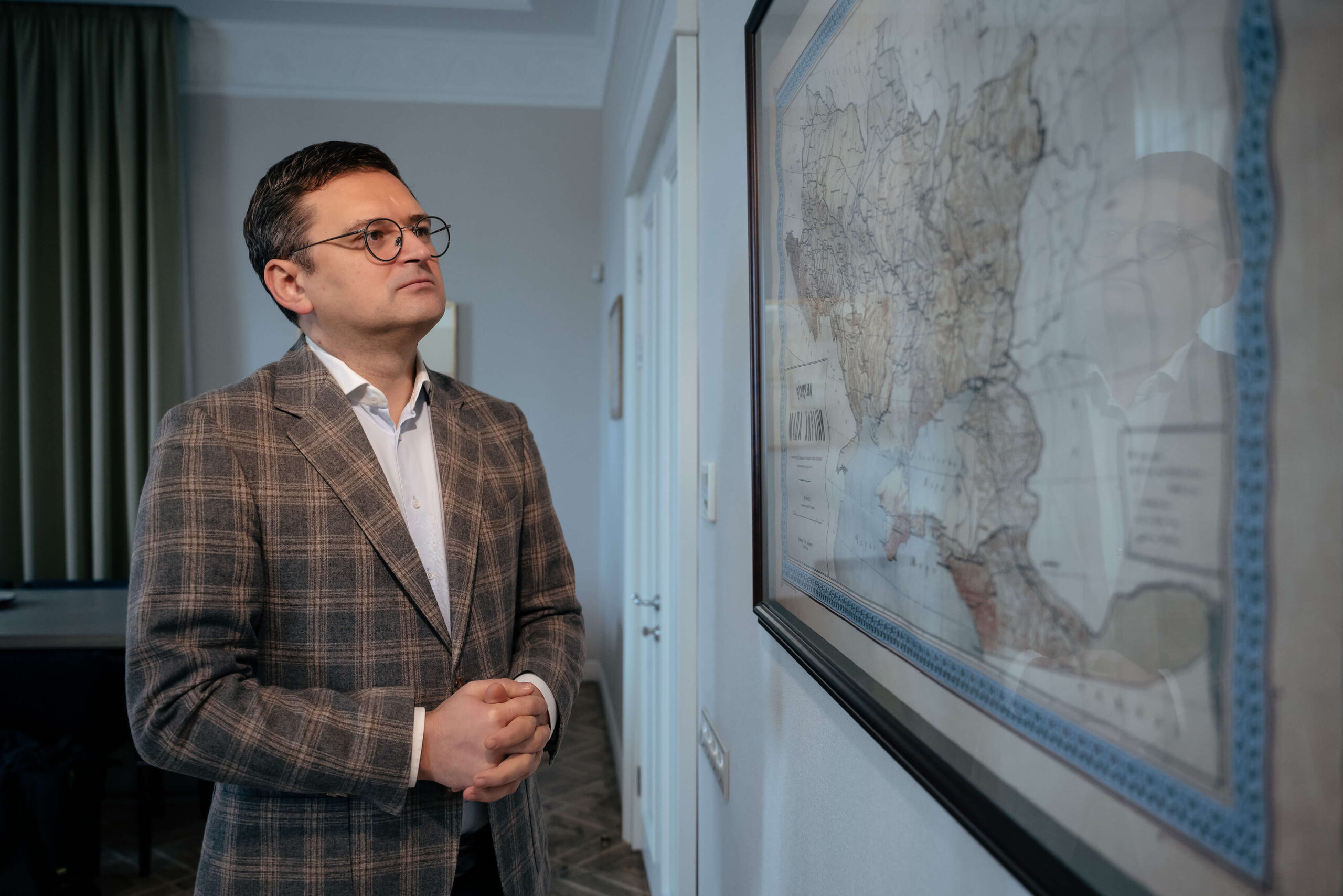
And the third task for the Minister was to reform the Ministry from inside, so that it became more modern and efficient. “I offered my employees a simple deal: I will do everything for their life in this system to be as comfortable and supportive as possible, and you are doing everything for Ukraine to win on the international arena and to be established as an equal subject of international politics,” says Dmytro Kuleba.
Minister claims we need to eradicate the inferiority complex, as, on the one hand, we say how proud we should be of our country, and then we humiliate it ourselves by saying that it is not a subject but an object of international relations:
“I understand it is easy and mainstream narrative within our numerous intellectual and pseudo-intellectual circles, but I am strongly against such clichés. For me, Ukraine has been a subject of international politics and international relations since August 24, 1991. The only question is how wide Ukraine’s opportunities are in the world. And, of course, after February 24, 2022, no matter how paradoxically it may sound, the number of opportunities for Ukraine in the world grew instantly and exponentially.”
In late 2021, Dmytro Kuleba realized an escalation of the war was inevitable. But he didn’t expect it to become a full-scale war. Even when working on his book “War for Reality,” he only meant information confrontation: “I was convinced that we would spend the next decades in a diplomatic struggle to restore territorial integrity. That’s why I wrote a book on communicative wars for senses, emotions, thoughts, because I thought that was going to be our main front. I was wrong.”
A few months before the invasion
The tension in society had been going through the roof for the last few months, specifically several weeks prior to February 24. The likelihood of a new Russian invasion was assessed by all as very high. Dmytro Kuleba realized there would be an offensive in October, but he was certain the country was facing the local war in Donbas along the present contact line and possibly from the Crimea direction.
“I possessed data from various sources, and also I relied on my own logic and intuition. So, no matter how many times I was told in autumn that there were going to be missile attacks on Kyiv and other cities, I couldn’t embrace it with my rather flexible mind. I didn’t believe that,” says Dmytro Kuleba. “And when Putin gathered his army along the border, my dad told me at the dinner table: “You see, when such a force gathers, it cannot remain static for long: it will either go forward or backward.” It was then I realized that most probably the army would go forward.”
When Russia demanded that the West provide it with legal security guarantees, everything became clear.
“Then, you didn’t have to be a genius to get the logic of events. I mean we asked you to provide us with security guarantees, you refused, so now our hands are free, and we have the right to decide on our own security.”
The following weeks were emotionally excruciating. Every day we received more and more information. The Ministry was torn between the need to maintain stability in the country and simultaneously prepare for a possible war. “Despite the enormous escalation, we were still hoping we would somehow manage to prevent the war, so we worked through different scenarios. My head thought I could avoid it, but my hands were preparing for war,” says Dmytro Kuleba. “People have a lot of simple recipes on social media, but when you are responsible for people, for the country, it’s very, very difficult.”
Also, a few months before the war, the minister met with his good friend, U.S. Secretary of State Anthony Blinken, who came to support the Ukrainians.
“I was sitting in my chair, and Anthony was sitting across from me. We spoke on the threat of war, and I told him: “Tony, look, all my predecessors in this position, and the entire Ukrainian elite, who had tried to build the Ukrainian state since the Soviet times, eventually wrote their memoirs in political exile. Please keep in mind I will write my own memoirs in Kyiv, in free and independent Ukraine, even if we have to wage war before that.”
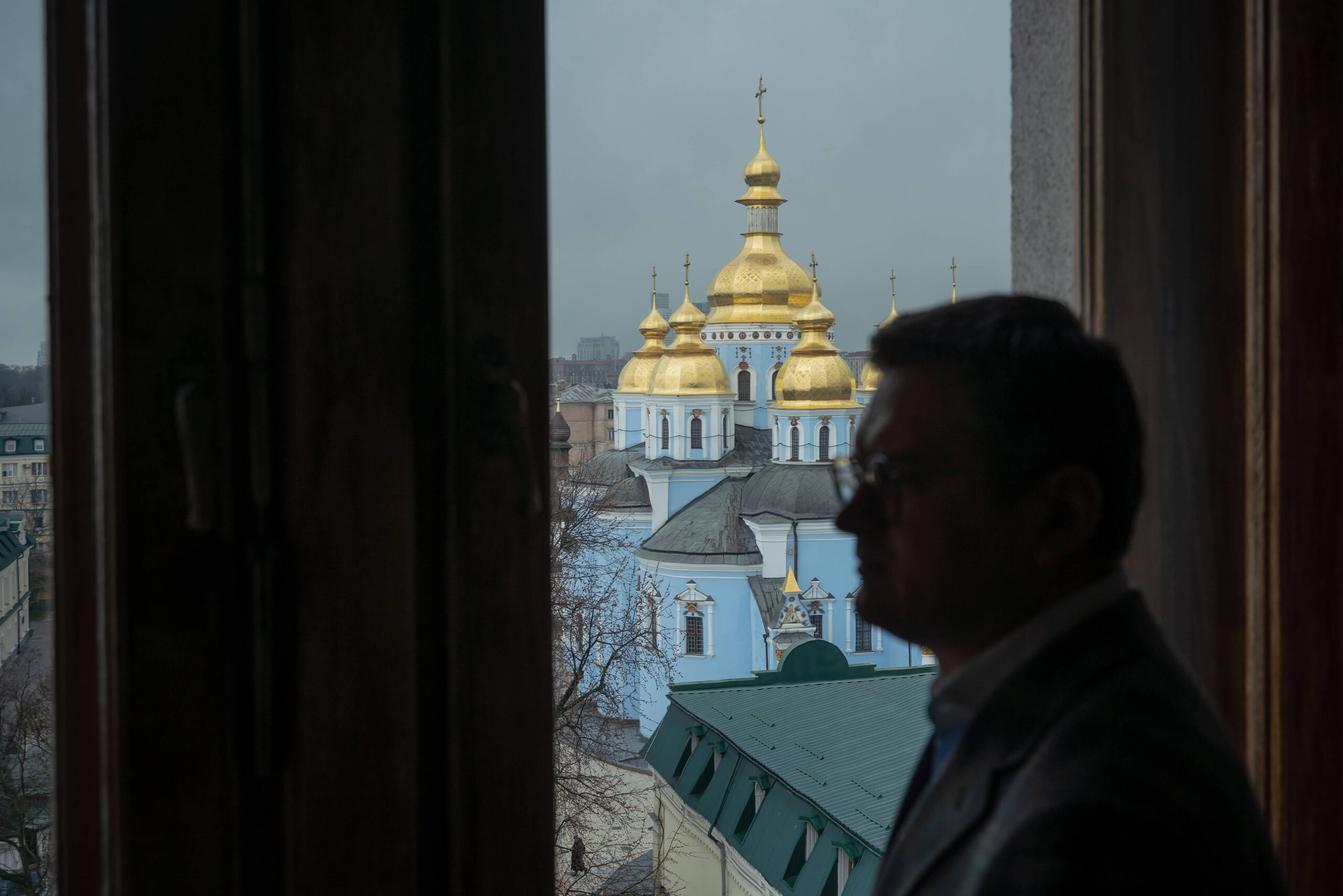
Minister Kuleba convened the first closed-door meeting of the MFA leadership in November. He asked his colleagues to hypothetically imagine the country was in a very uncontrollable crisis. He checked whether all the protocols within the mobilization department were working, and encouraged his colleagues to think on how everyone would work if there was no Internet or phone connection.
Step by step, we started to check the MFA system for its viability in the face of Armageddon. I didn’t share my personal thoughts so as not to spread panic and hysteria. And I am awfully sorry I was not in Kyiv, here, on Mykhailivska St, on February 24, and I didn’t personally lead evacuation from the Ministry. On that day, I was on my way from the UN, where I had spoken in front of the General Assembly. Russian bastards could have waited for two more days…,” Dmytro Kuleba complains.
24.02.2022
On February 23, in New York, the Minister was constantly in touch with President Zelenskyy—he shared the information flowing from various sources. On that very afternoon (it was already evening in Kyiv) he received a message that the war was going to break out the next day at 4-5 AM.
“I got on plane, connected my phone to the Internet and saw in my Facebook feed a post by some news agency about the plane in Boryspil, that was already on the runway and ready to take off, when it was turned back to the parking lot. I realized that war had broken out, that military planes had entered our airspace, and, therefore, the air was closed to civil aviation,” Dmytro Kuleba recalls. “I called my parents instantly and told them what they needed to do, I called my children and told them I loved them… I had no despair, no fear, I just started acting like a machine.”
On that day, Dmytro Kuleba had one emotional moment. He changed his tickets from Istanbul-Kyiv to Istanbul-Warsaw to come to Ukraine from Poland. When he got on board, a confused and frightened woman sat next to him. She said she had recognized the minister and told him in tears, that her three children, who had stayed with their nanny, were waiting for her in Kyiv, in Obolon district. Then, she asked him what she had to do: to go to Kyiv or to try evacuating her children.
“At that moment I froze, realizing that I, who is responsible for the country in President Zelenskyy’s team, was to take responsibility for her three children, and, after a short pause, I told her: “I don’t know… The war has broken out, anything can happen. You have to decide on your own,” says Dmytro Kuleba. “When the woman went away, I realized how many similarly critical situations, tragedies, pain, and tears were awaiting us. And every one of us will never know even the tenth part of the total grief we will go through. Then, I turned to the window, I was choking with tears, a few of them ran down my cheeks. But then I pulled myself together and told myself that I, above all, could not allow myself to behave in that way. Since then, I stay strong.”
And then the endless work began. In the first days, Dmytro Kuleba also had his doubts that Ukraine would hold out, but, as far as he is concerned, there are moments in life when we should rely on faith rather than on mathematical analysis. We should throw away the what-if-we-fail thought and do everything possible. Even if the conditions are all against you and there is no guarantee, you should still believe, as only your faith will save you. That’s what kept Ukrainians during the first weeks of the war.
“I remember how they gave us, according to different estimations, 48 hours, 72 hours, or a week at most. Once you believed it, you had to just sit doing nothing and wait. But we did the opposite—we pumped ourselves with the enormous faith that they would not succeed this time.”
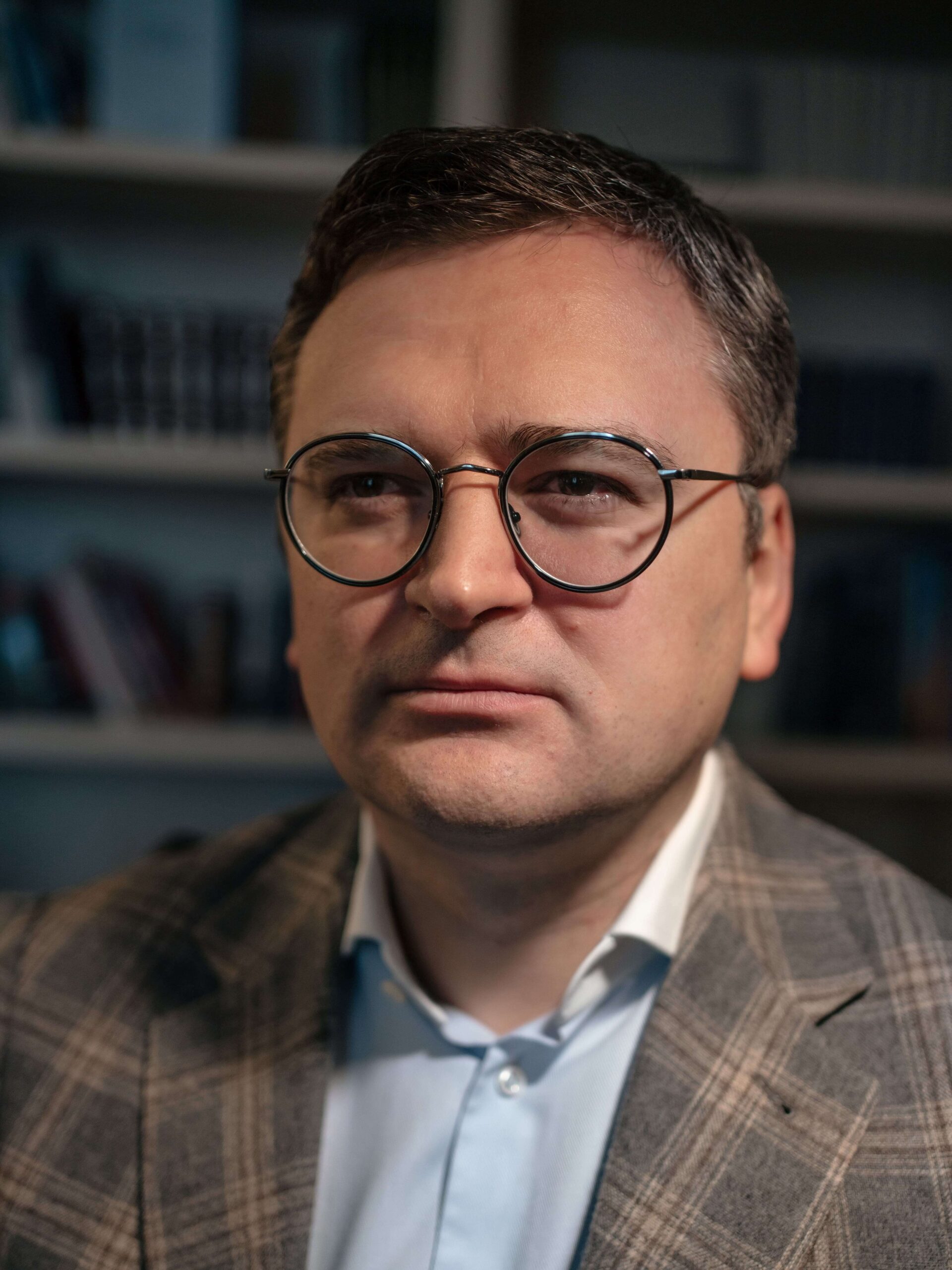
The minister emphasizes that Ukrainians withstood the blow also because they were tired of carrying the burden of all previous generations who had lost to Russia and living under the curse of a nation that could win battles but lost wars. As, he claims, our entire history of wars with Russia is about winning individual battles that we were very proud of, but in the end, for one reason or another, we were pinned down. This was not always done exclusively by force of arms, but often by bribery and the temptation of political careers.
When you have the potential burden of joining all these nice people who have ruined the country, it’s very difficult.
“I intentionally called them “nice people,” as all of them are indeed nice, and they all contributed to Ukrainian state-building, but failed to do the main thing. As any ambitious person, I do not wish to join their rows. Faith along with this historical anger kept me personally during the first three weeks.”
We are Europeans
The minister claims neither Europe nor the USA believed that Ukraine would hold for as long as several weeks. They were ready to accept the scenario of our capitulation, therefore they didn’t provide any weapons.
“Wize people in New York told me that when the war broke out, Ukraine would be captivated, guerrilla movement would unfold etc… Legitimate representatives of the Ukrainian government would be needed abroad for cooperating and supporting the struggle, so I was advised not to come back to Ukraine. There was also an offer to take President Zelenskyy out of Ukraine, too, but he refused. Obviously, the aim was not to just save the life of a nice person, but to work with the legitimate president in exile, when Ukraine was invaded,” says Dmytro.
Ukraine held out, so the civilized world had to break down their outdated stereotypes on what Russia was:
“The Russian Empire entered into active international relations under Peter the Great, and for around 300 years the world lived with the idea that Russia was a complex, difficult partner, but a partner, nonetheless. And suddenly we tell them to forget about those 300 years because Putin is now a new Hitler. And Rashizm is a new Nazism. It is hard to change the settings all at once, isn’t it? Thus, our partners’ activity from making grand political decisions to decisions on providing weapons can be explained by the fact that it is extremely difficult to overcome the already established inertia of political thinking.
Unfortunately, Mariupol, Bucha, Irpin, Bakhmut, and the deaths of civilians and soldiers, are the price we are paying for the destruction of three centuries of stereotypes and perceptions about Ukraine and Russia.
As a diplomat, I can definitely say that a critical number of Europeans have a mental gap in their perception of Ukrainians as part of the “Russian world.” And, provided we are not its part, it’s obvious we are Europeans.”
It is one of the major reasons for which today, Europe, like never before, is open to Ukraine’s accession to the EU and NATO. However, for Dmytro Kuleba as a minister, the accession to these organizations means something more:
“We want for Ukraine to become an EU and NATO member, because in today’s architecture of the world safety and welfare it is our only chance to guarantee the independence and flourishing of our country. Still, we are living in times when anything can change rapidly, therefore it is very dangerous to set the membership in any association as the aim in itself. Tomorrow, everything may change. Thus, we should have one and only aim as a country—an independent, wealthy, and strong Ukraine within its 1991 borders. As of now, the EU and NATO embody these three categories.”
The enemy always has their plan, while we have ours.
“War is a simple thing from some perspective: our enemy always has their plain, while we have ours,” the minister contemplates. In his opinion, our task now is to strengthen the army with weapons as much as possible and to undermine Russian society, which supports the war, as much as possible. Sanctions, suppression of the Russian economy and support for the enslaved peoples of Russia are all elements of undermining.
Certainly, those who believed that the Russian people would quickly stop this war were romantics, completely detached from reality, but those who do not understand that in the end the Russian people are the only way to change Russia and stop the war—in this particular sequence—they are, to put it mildly, ignorant, and diplomatically, people who do not understand the logic of the processes,” Dmytro Kuleba is convinced.
In his opinion, everything will ultimately depend on the Russians. But how to force them to act, what scale of tragedy should take place, what forces should come to the surface and change Russia—this is the task of practical politics. And, eventually, the Russian people will be forced to take action:
“Nobody knows what has to happen, like nobody knew what specifically would ruin the Soviet Union. Moreover, on the verge of the collapse of the USSR, the United States did everything to prevent this from happening. Just think of George W. Bush’s speech in the Verkhovna Rada. In his speech, he urged us to withhold from proclaiming our independence. Everyone wanted the Soviet Union with a civilized face, but anyway history took its course.
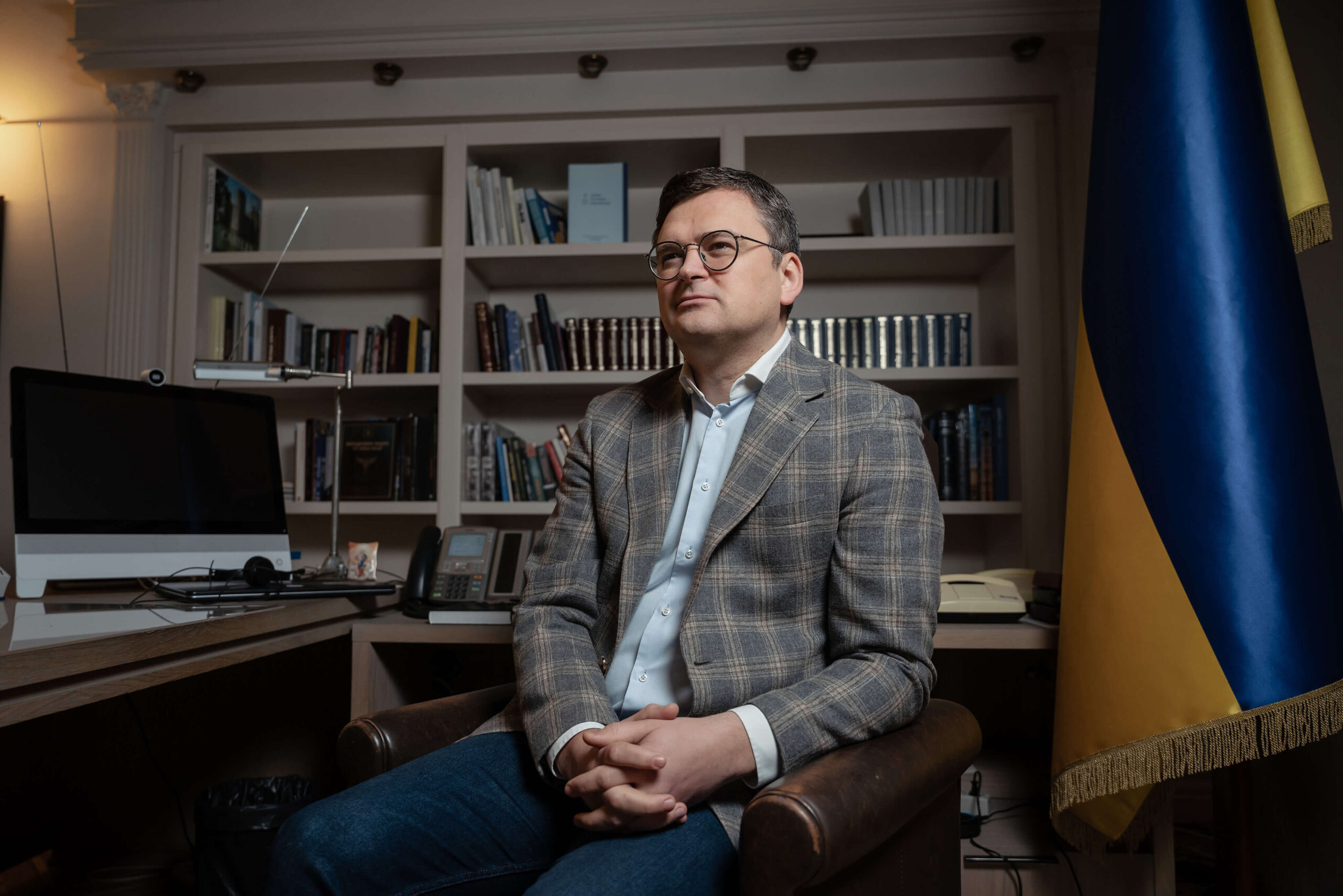
Has the world realized what a just end of war should look like? As far as Dmytro Kuleba is concerned, basic understanding of justice is volatile. This is not a mathematical, but a social and philosophical category. Now, one of our victories on the international arena is that the Ukrainian diplomats managed to pick up the keys and change the rhetoric of their partners. Instead of “we help for Russian not to win”—now there is “we help for Ukraine to win.”
“Victory is, first and foremost, the restoration of internationally recognized borders. This is a real tectonic shift, which I am very pleased with, because it is then used to build a policy of providing the necessary weapons and even tougher sanctions against Russia.”
Valeriy Pekar, a lecturer at the Kyiv Mohyla Business School, praises the work of Ukrainian diplomacy, especially in the face of limited resources:
“I am very positive about the work of the Ministry of Foreign Affairs and Ukrainian diplomacy, despite the fact that there is a huge positive contribution of President Zelensky personally in this area. As, thanks to Ukrainian diplomacy, a powerful anti-Putin coalition has been created, which now provides weapons and money for our defense and keeps our economy afloat. At the same time, resources allocated to Ukrainian diplomacy rather correspond to the level of a third world country without any geopolitical interests. And today, the Ministry of Foreign Affairs is the same warring ministry as the Defense Ministry. We should significantly raise the ministry resource base to strengthen our work in dozens of areas where Russian propaganda is still strong. Also, we should actively engage the power of civil society and business, that could be our “ambassadors” where state resources are not enough.”
Meanwhile, Pavlo Klimkin also notes that the MFA has been doing a good job of keeping its front up since the beginning of the full-scale invasion. “It is vital for us to have a clear vision of ourselves, of the reality around us, of what awaits Russia after the war, of what awaits Europe afterwards, of the safety model after our victory… All these discussions should be drivers of changes. I believe we have this understanding in the Ministry of Foreign Affairs.”
The existential war continues. Dmytro Kuleba is certain that February 24, 2022, became a turning point in the history of the world that will never be the same as it was before this date: “Somebody could say it is a European war—but this is a profound mistake. It is a global war. During World War II, the main fronts were in Europe as well, but the outcomes made the whole world reload. All empires fell, but one—the Russian Empire. By the way, it was the only empire that survived the era of imperialism and did not collapse but expanded and reincarnated as the Soviet Union.”
That is why what is happening to Russia now is unfinished business of the twentieth century, which Ukraine will undoubtedly complete.
Translation — Olha Dubnevych
§§§
[The translation of this publication was compiled with the support of the European Union and the International Renaissance Foundation within the framework “European Renaissance of Ukraine” project. Its content is the exclusive responsibility of the authors and does not necessarily reflect the views of the European Union and the International Renaissance Foundation]
